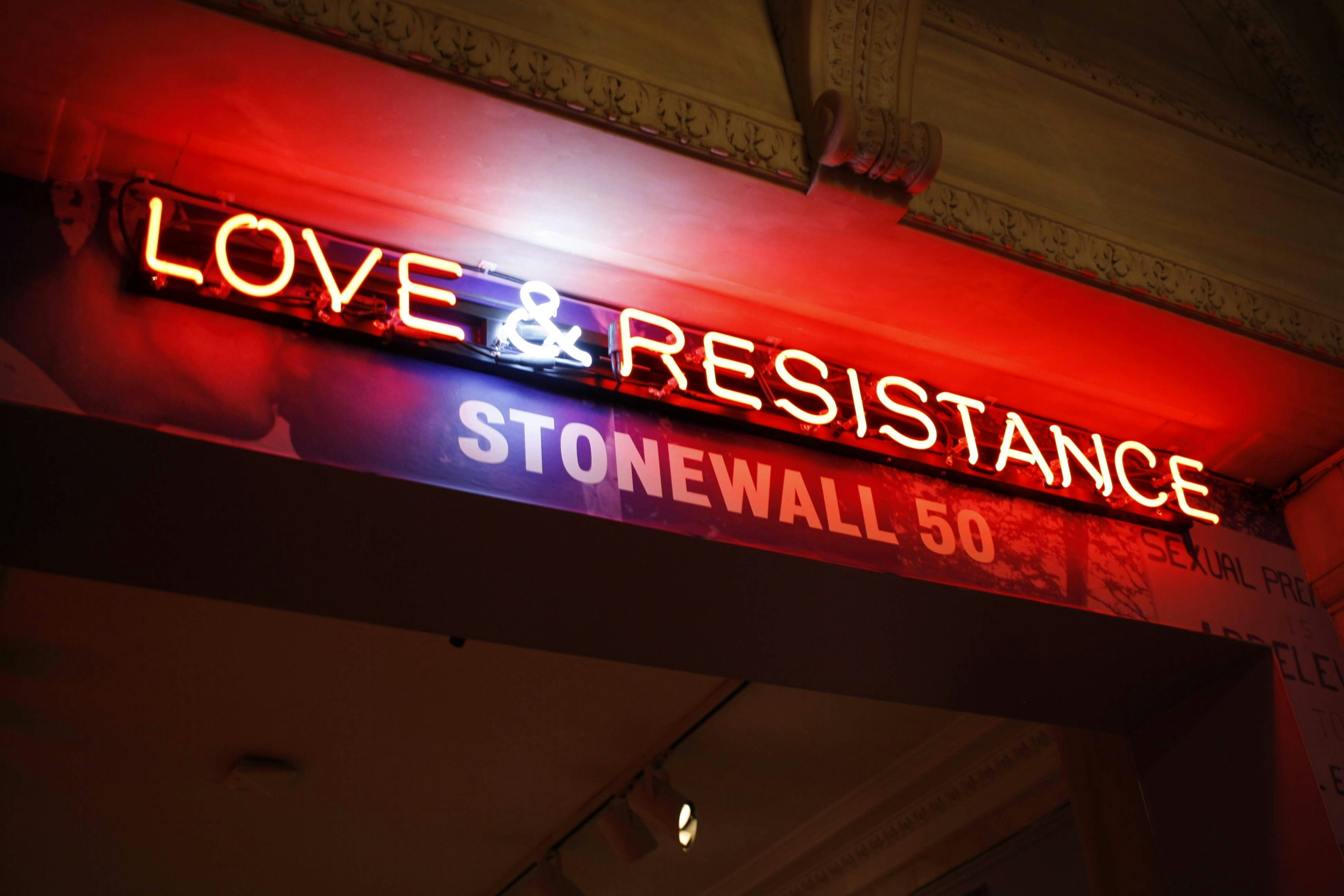
The National Park Service’s recent update to the Stonewall National Monument website has stirred controversy and concern within the LGBTQ+ community. The revision removes all references to transgender individuals and shortens the acronym “LGBTQ+” to just “LGB” or “LGBQ.” This shift has sparked strong reactions, with critics arguing that it erases thNational Park Service Revises Stonewall Website, Sparks Outrage Over Erased Transgender Legacye critical role transgender activists played in the Stonewall Uprising and diminishes their contributions to LGBTQ+ history.
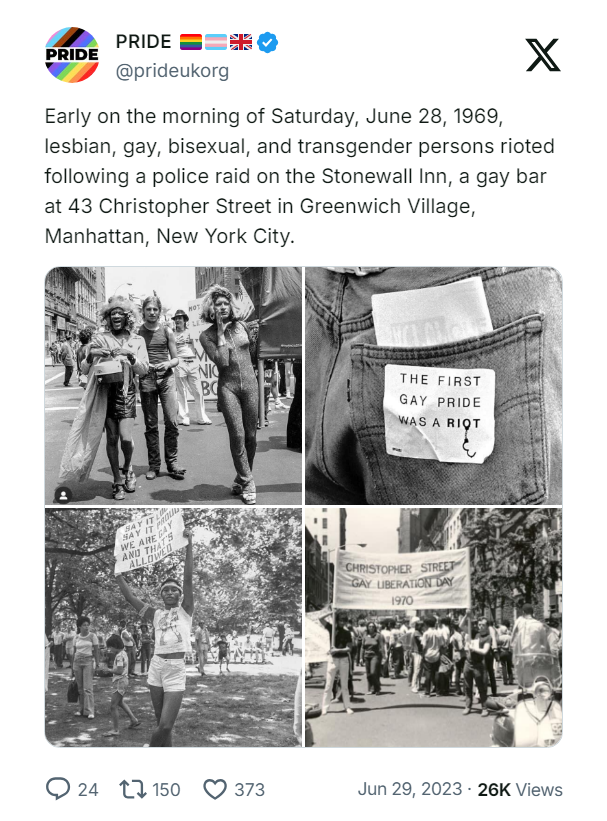
In the updated description, the Park Service now states: “Before the 1960s, almost everything about living openly as a lesbian, gay, bisexual (LGB) person was illegal, but the events at the Stonewall Inn sparked fresh momentum for the LGB civil rights movement!” Notably, the word “transgender” has been entirely removed, along with any mention of “queer.” This change has raised questions about why these revisions were made and who was responsible for them, especially considering the political climate and recent attacks on transgender rights, including actions taken under the Trump administration.
In response, the Stonewall Inn and the Stonewall Inn Gives Back Initiative issued a joint statement condemning the revisions, calling them a “deliberate attempt to erase our history.” The statement stressed that transgender activists were key to the Stonewall Uprising and that their roles should not be downplayed or erased.
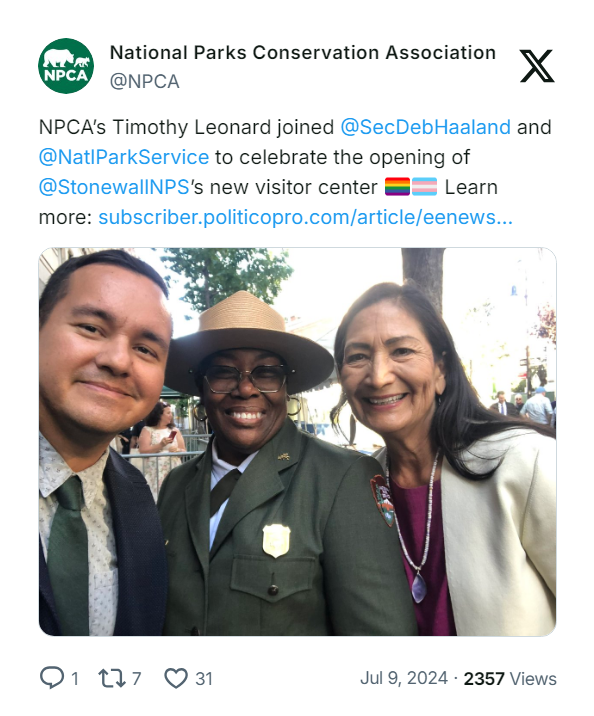
Timothy Leonard, from the National Parks Conservation Association (NPCA), expressed his concern, emphasizing that removing references to transgender people doesn’t change history. He pointed out that transgender individuals were integral to the civil rights victories of the LGBTQ+ community, particularly at Stonewall. “Erasing letters or webpages does not change the history or the contributions of our transgender community members,” Leonard said.
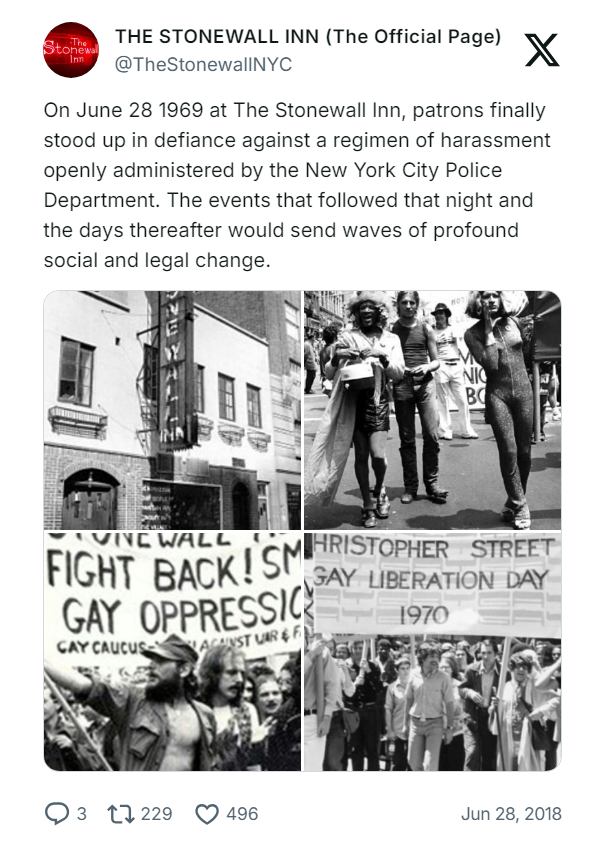
The Stonewall Uprising, which began as a protest against a police raid at the Stonewall Inn in 1969, marked a turning point in the LGBTQ+ rights movement. While it wasn’t the first LGBTQ+ protest, it became a defining moment in the fight for equality. Transgender activists, such as Marsha P. Johnson and Sylvia Rivera, were crucial to the event. Johnson and Rivera, who were present during the first night of riots, went on to found the Street Transvestite Action Revolutionaries (STAR), an organization dedicated to supporting homeless transgender youth and advocating for transgender rights within the broader LGBTQ+ movement.
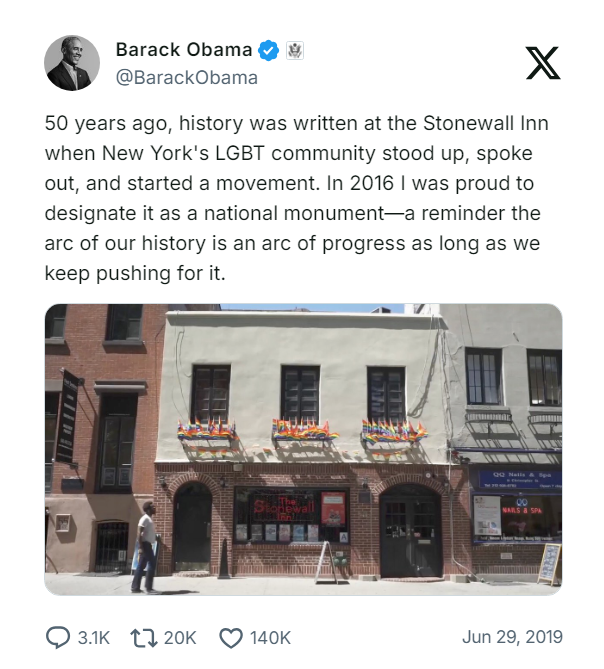
In 2016, President Barack Obama designated the Stonewall Inn as a national monument, recognizing it as the first U.S. landmark dedicated to LGBTQ+ history and rights. However, the recent revisions to the National Park Service website have sparked backlash, with LGBTQ+ groups organizing protests to address these changes and call for greater recognition of transgender history and rights.
As the debate continues, the legacy of transgender activists like Marsha P. Johnson and Sylvia Rivera, along with the history of the Stonewall Uprising itself, remains a crucial chapter in the ongoing fight for equality and justice for all LGBTQ+ people. The struggle to ensure that transgender contributions are fully acknowledged and celebrated is far from over.
Source: NPR


“We must all hang together, or assuredly we shall all hang separately.”
Getting rid of the T is a plain divide and conquer tactic, if we allow them to do that when which letter do they decide is next? Make no mistake, they may start with Trans erasure, but they will get to the rest of us eventually.